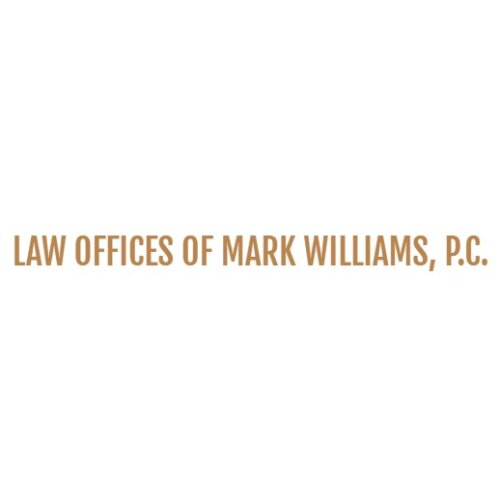Best Immigration Lawyers in Guam
Share your needs with us, get contacted by law firms.
Free. Takes 2 min.
Or refine your search by selecting a city:
List of the best lawyers in Guam
About Immigration Law in Guam:
Immigration law in Guam governs the entry, stay, and status of individuals from foreign countries. As an unincorporated territory of the United States, Guam has its own immigration laws that are separate from U.S. immigration laws. People seeking to live, work, or study in Guam must adhere to these laws and regulations.
Why You May Need a Lawyer:
You may need a lawyer for immigration matters in Guam if you are facing deportation, applying for a visa or green card, sponsoring a family member for immigration, seeking asylum, or dealing with any other complex immigration issues. A lawyer can provide legal guidance, help navigate the legal process, and ensure your rights are protected throughout the immigration process.
Local Laws Overview:
In Guam, immigration law is governed by the Guam Department of Labor, which oversees work permits and temporary foreign worker programs. The United States Citizenship and Immigration Services (USCIS) also plays a role in processing visa applications and other immigration-related matters in Guam. It's important to understand the specific requirements and regulations set forth by these agencies when dealing with immigration issues in Guam.
Frequently Asked Questions:
1. Can I work in Guam if I am not a U.S. citizen?
Non-U.S. citizens can work in Guam with the appropriate work authorization, such as a work visa or permit. It's important to comply with all requirements set forth by the Guam Department of Labor to legally work in Guam.
2. How can I sponsor a family member for immigration to Guam?
You can sponsor a family member for immigration to Guam by filing a petition with the USCIS. The specific requirements and process may vary depending on your relationship with the family member and their immigration status.
3. What is the process for applying for asylum in Guam?
To apply for asylum in Guam, you must file a Form I-589, Application for Asylum and for Withholding of Removal, with the USCIS. Asylum cases can be complex, so it's advisable to seek legal representation to assist with your application.
4. Can I apply for a green card in Guam?
Yes, you can apply for a green card (permanent residency) in Guam if you meet the eligibility requirements set forth by the USCIS. The process for obtaining a green card can be complicated, so it's recommended to consult with an immigration lawyer for guidance.
5. What are the consequences of overstaying a visa in Guam?
Overstaying a visa in Guam can result in deportation, fines, and other penalties. It's crucial to maintain legal status and comply with visa expiration dates to avoid legal consequences.
6. How long does it take to process a visa application in Guam?
Visa processing times in Guam can vary depending on the type of visa and individual circumstances. It's recommended to check with the USCIS for current processing times and timelines for visa applications.
7. Can I appeal a denial of my visa application in Guam?
Yes, you can appeal a denial of your visa application in Guam by filing an appeal with the USCIS or seeking other legal remedies. It's essential to follow the proper procedures and deadlines for appealing a visa denial.
8. Are there any temporary foreign worker programs in Guam?
Yes, Guam offers temporary foreign worker programs for individuals seeking employment opportunities in the territory. The Guam Department of Labor oversees these programs and sets forth the requirements for employers and foreign workers participating in temporary work programs.
9. What is the difference between U.S. immigration laws and Guam immigration laws?
While Guam is a U.S. territory, it has its own immigration laws that are separate from U.S. immigration laws. Individuals seeking to immigrate to Guam must comply with local laws and regulations specific to the territory.
10. How can I find a reputable immigration lawyer in Guam?
You can find a reputable immigration lawyer in Guam by asking for recommendations from friends or family, conducting online research, contacting the local bar association, or seeking referrals from other legal professionals. It's essential to choose a lawyer with experience in immigration law and a track record of success in handling immigration cases.
Additional Resources:
For more information on immigration laws and regulations in Guam, you can visit the Guam Department of Labor website or contact the USCIS office in Guam. Additionally, legal aid organizations such as the Guam Legal Services Corporation can provide assistance to individuals in need of legal advice or representation for immigration matters.
Next Steps:
If you require legal assistance for immigration issues in Guam, it's recommended to schedule a consultation with an experienced immigration lawyer. The lawyer can assess your case, provide guidance on the best course of action, and help you navigate the complex immigration process in Guam. Remember to gather all relevant documents and information before meeting with the lawyer to ensure a productive consultation.
Lawzana helps you find the best lawyers and law firms in Guam through a curated and pre-screened list of qualified legal professionals. Our platform offers rankings and detailed profiles of attorneys and law firms, allowing you to compare based on practice areas, including Immigration, experience, and client feedback.
Each profile includes a description of the firm's areas of practice, client reviews, team members and partners, year of establishment, spoken languages, office locations, contact information, social media presence, and any published articles or resources. Most firms on our platform speak English and are experienced in both local and international legal matters.
Get a quote from top-rated law firms in Guam — quickly, securely, and without unnecessary hassle.
Disclaimer:
The information provided on this page is for general informational purposes only and does not constitute legal advice. While we strive to ensure the accuracy and relevance of the content, legal information may change over time, and interpretations of the law can vary. You should always consult with a qualified legal professional for advice specific to your situation.
We disclaim all liability for actions taken or not taken based on the content of this page. If you believe any information is incorrect or outdated, please contact us, and we will review and update it where appropriate.
Browse immigration law firms by service in Guam
Guam Attorneys in related practice areas.
Browse immigration law firms by city in Guam
Refine your search by selecting a city.









